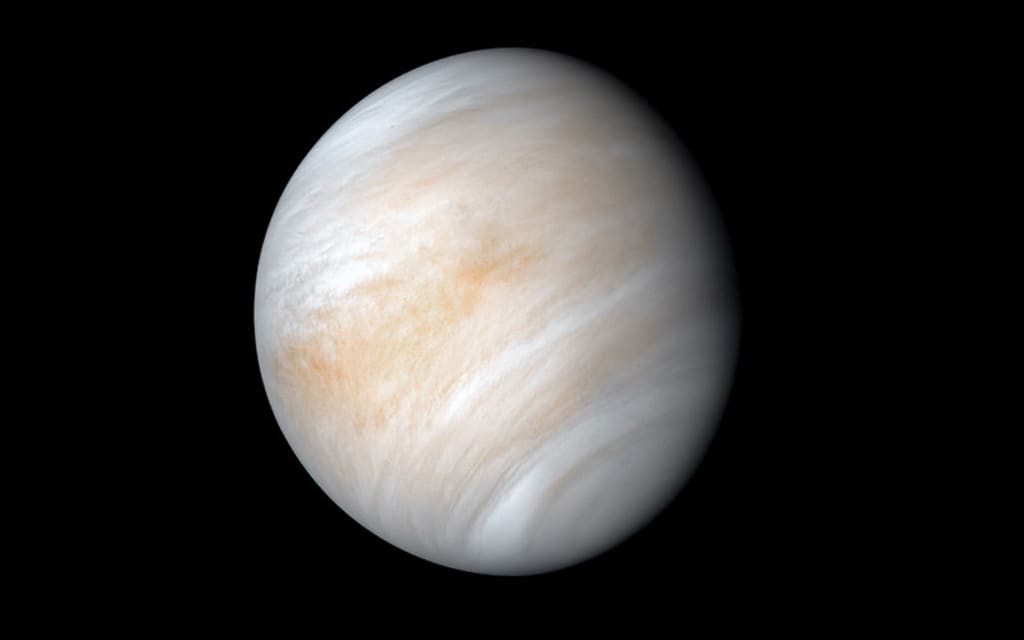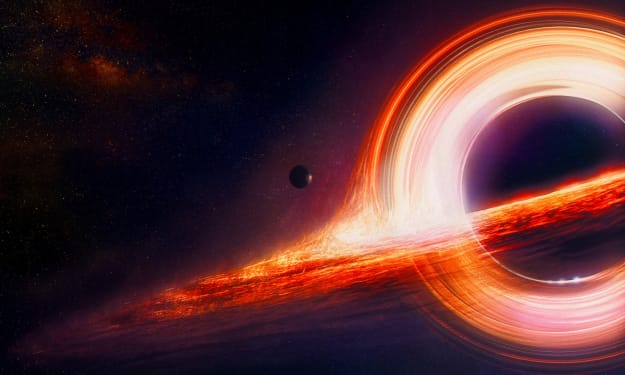What killed Venus?
Venus could have been a paradise but turned into a hellscape. Earthlings, pay attention.

“Hellscape” is the most appropriate word to describe the surface of Venus, the second nearest planet from the sun. At 900 degrees Fahrenheit (475 C), it’s the hottest planet in the solar system, thanks to an atmosphere that’s almost entirely made up of carbon dioxide, which generates a really strong greenhouse effect. Clouds made of highly corrosive sulfuric acid are draped over a volcanic landscape of razor-sharp volcanic rock. The pressure on the surface of Venus is about 92 times what you’d feel at sea level on Earth.
Yet some scientists suspect Venus was once much like Earth, with a liquid water ocean like the ones that support life on our planet. This prompts an existential question for life on Earth.
“Venus and Earth are planetary siblings,” says Robin George Andrews, volcanologist and author of Super Volcanoes: What They Reveal about Earth and the Worlds Beyond. “They were made at the same time and made of the same stuff, yet Venus is apocalyptic and awful in every possible way. Earth is a paradise. So why do we have a paradise next to a paradise lost?”
There are two leading hypotheses. One is that the sun cooked Venus to death. The other is that volcanoes did.
“Venus and Earth are planetary siblings,” he says. “They were made at the same time and made of the same stuff, yet Venus is apocalyptic and awful in every possible way. Earth is a paradise. So why do we have a paradise next to a paradise lost?”
Venus and Earth are sometimes called twins because they're pretty much about the same size. Venus is almost as big as Earth. They also formed in the same inner part of the solar system. Venus is in fact our closest neighbor to Earth.
Scientists know something on Venus triggered truly catastrophic levels of climate change, causing surface temperatures to shoot up hundreds of degrees. But they don’t know exactly what. I spoke to Andrews for an episode of Unexplainable, Vox’s science podcast about unanswered questions, about what could have triggered Venus’s apocalypse and why we should care about it. Our conversation has been edited for length and clarity.
As a result of Jupiter – the largest planet in our solar system – moving closer and then away from the sun in its early formation, the planet's vast gravitational pull effectively killed off Venus' potentially Earth-like environment, the authors of a study published in the Planetary Science Journal found.
But new research suggests Venus didn't die billions of years ago. Its oceans may have survived until relatively recently - up to a mere 700 million years ago (which is basically "yesterday" when it comes to astronomy).
After soo much negative description about the Venus a simple question occurs,
Is Venus the most toxic planet in the Solar System?
The answer is, YES! 0.015% 0.007% 3.5% 64% Page 2 Venus is the most dangerous planet in the solar system: its surface is at 393°C, hot enough to melt lead. It's even hotter than the planet Mercury, which is closest to the Sun. Venus' atmosphere is acidic and thick.
Here is a conversation of 2 scientist researching about Venus
The scientific jury is still out
Brian Resnick
So we have our two suspects here. We have the sun and we have massive eruptions on Venus that broke Venus. Which one should we sentence here?
Robin George Andrews
The volcanoes seem more likely because we can see how that’s happened on Earth — just to a slightly lesser extent. But if this was put into a court of law, they would both be presumed not guilty, just because there isn’t a telltale bit of evidence yet.
Brian Resnick
So how do we solve this mystery?
Robin George Andrews
There’s basically a fleet of missions that is going to unravel the geologic makeup of Venus today. If it looks bone-dry and it was always bone-dry, then maybe the sun did it, because it’s been dehydrated for a long time.
But if it looks like there’s still some dehydration going on, that means you still have water somewhere. If Venus was still kind of soggy on the inside, and it’s still kind of belching water out, the volcanoes probably killed Venus.
Brian Resnick
Could the Earth pull a Venus one day?
Robin George Andrews
[Laughs.] Yeah, it could. Let’s not panic — I mean, these sorts of eruptions are like millions of years in timescales. So it’s not like no one would see this coming and we’d instantly be doomed. But it could happen. And the question is: Is it normal for a planet to have just one of these really epic, game-changer eruptions at one time? Or is it just a fluke?
The fact that no one knows the answer to this is weirdly, perversely exciting to me. We don’t know how often it is that volcanoes decide to trash the planets they’re on.
Brian Resnick
People sometimes bring up Venus in the context of climate change. It’s an example of how bad a planet can become when greenhouse gases start to accumulate in an atmosphere. Could we humans potentially be the volcano?
Robin George Andrews
The pace at which we’re putting carbon dioxide into the sky is worse than what was happening during the Great Dying, in terms of the amount of carbon per year.
Brian Resnick
But we would need to keep this up for millions of years to match, right?
Brian Resnick
Could the Earth pull a Venus one day?
Robin George Andrews
[Laughs.] Yeah, it could. Let’s not panic — I mean, these sorts of eruptions are like millions of years in timescales. So it’s not like no one would see this coming and we’d instantly be doomed. But it could happen. And the question is: Is it normal for a planet to have just one of these really epic, game-changer eruptions at one time? Or is it just a fluke?
The fact that no one knows the answer to this is weirdly, perversely exciting to me. We don’t know how often it is that volcanoes decide to trash the planets they’re on.
Brian Resnick
People sometimes bring up Venus in the context of climate change. It’s an example of how bad a planet can become when greenhouse gases start to accumulate in an atmosphere. Could we humans potentially be the volcano?
Robin George Andrews
The pace at which we’re putting carbon dioxide into the sky is worse than what was happening during the Great Dying, in terms of the amount of carbon per year.
Brian Resnick
But we would need to keep this up for millions of years to match, right?
Robin George Andrews
Right.
Brian Resnick
This is weirdly reassuring that humans are unlikely to break the Earth completely.
Robin George Andrews
Yeah. I think it would be a terrible idea to pay homage to what happened to Venus.
If you liked the informations and learned anything new please give one LIKE and COMMENT if you want me to write on any topic and to know anything. THANKS for reading.
About the Creator
Atharul Islam Iram
Hi, my name is AI Iram. Beside my work, I like to collect many interesting facts and unsolved mysteries of science from different books and websites. I have started posting this fantastic mysteries so you can know about this things easily.





Comments
There are no comments for this story
Be the first to respond and start the conversation.